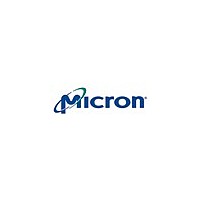JS28F320C3BD70 Micron Technology Inc, JS28F320C3BD70 Datasheet - Page 49

JS28F320C3BD70
Manufacturer Part Number
JS28F320C3BD70
Description
Manufacturer
Micron Technology Inc
Datasheet
1.JS28F320C3BD70.pdf
(70 pages)
Specifications of JS28F320C3BD70
Density
32Mb
Access Time (max)
70ns
Interface Type
Parallel
Boot Type
Bottom
Address Bus
21b
Operating Supply Voltage (typ)
3/3.3V
Operating Temp Range
-40C to 85C
Package Type
TSOP
Sync/async
Asynchronous
Operating Temperature Classification
Industrial
Operating Supply Voltage (min)
2.7V
Operating Supply Voltage (max)
3.6V
Word Size
16b
Number Of Words
2M
Supply Current
18mA
Mounting
Surface Mount
Pin Count
48
Lead Free Status / Rohs Status
Compliant
Available stocks
Company
Part Number
Manufacturer
Quantity
Price
Company:
Part Number:
JS28F320C3BD70
Manufacturer:
INTEL
Quantity:
71
Part Number:
JS28F320C3BD70
Manufacturer:
INTEL/英特尔
Quantity:
20 000
C3 Discrete
11.1.1.1
11.1.1.2
11.1.1.3
11.2
11.3
March 2008
290645-24
The following paragraph concisely summarizes the locking functionality.
Locked State
The default state of all blocks upon power-up or reset is locked (states [001] or [101]).
Locked blocks are fully protected from alteration. Any Program or Erase operations
attempted on a locked block will return an error on bit SR[1]. The state of a locked
block can be changed to Unlocked or Lock Down using the appropriate software
commands. An Unlocked block can be locked by writing the Lock command sequence,
0x60 followed by 0x01.
Unlocked State
Unlocked blocks (states [000], [100], [110]) can be programmed or erased. All
unlocked blocks return to the Locked state when the device is reset or powered down.
The status of an unlocked block can be changed to Locked or Locked Down using the
appropriate software commands. A Locked block can be unlocked by writing the Unlock
command sequence, 0x60 followed by 0xD0.
Lock-Down State
Blocks that are Locked-Down (state [011]) are protected from Program and Erase
operations (just like Locked blocks), but their protection status cannot be changed
using software commands alone. A Locked or Unlocked block can be Locked Down by
writing the Lock-Down command sequence, 0x60 followed by 0x2F. Locked-Down
blocks revert to the Locked state when the device is reset or powered down.
The Lock-Down function depends on the WP# input pin. When WP# = 0, blocks in Lock
Down [011] are protected from program, erase, and lock status changes. When
WP# = 1, the Lock-Down function is disabled ([111]), and Locked-Down blocks can be
individually unlocked by software command to the [110] state, where they can be
erased and programmed. These blocks can then be relocked [111] and unlocked [110]
as required while WP# remains high. When WP# goes low, blocks that were previously
Locked Down return to the Lock-Down state [011], regardless of any changes made
while WP# was high. Device reset or power-down resets all blocks, including those in
Lock-Down, to Locked state.
Reading Block-Lock Status
The Lock status of each block can be read in read-identifier mode of the device by
issuing the read-identifier command (0x90). Subsequent reads at Block Address +
0x00002 will output the Lock status of that block. The Lock status is represented by
DQ0 and DQ1:
See
Locking Operations during Erase Suspend
Changes to block-lock status can be performed during an erase-suspend by using the
standard locking command sequences to Unlock, Lock, or Lock Down a block. This
operation is useful in the case when another block needs to be updated while an Erase
operation is in progress.
• DQ0 indicates the Block Lock/Unlock status and is set by the Lock command and
• DQ1 indicates Lock-Down status and is set by the Lock-Down command. It cannot
cleared by the Unlock command. It is also automatically set when entering Lock
Down.
be cleared by software—only by device reset or power-down.
Table 22, “Device Identification Codes” on page 42
for block-status information.
Datasheet
49

















